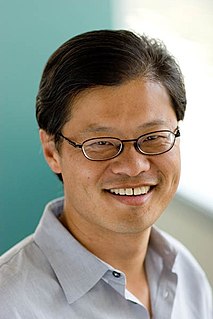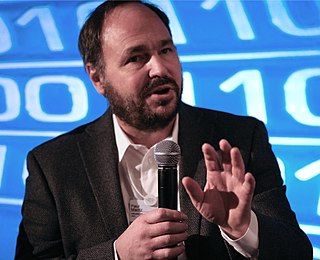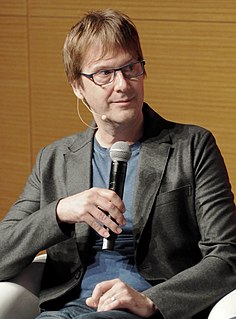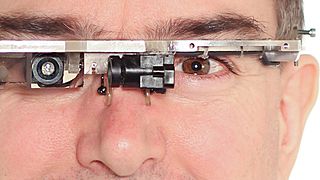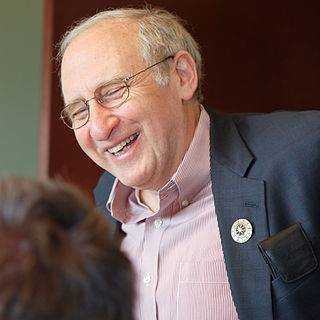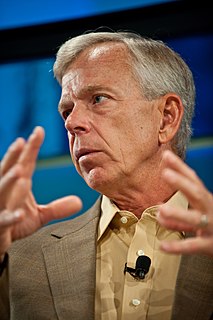Top 1200 Cloud Computing Quotes & Sayings
Explore popular Cloud Computing quotes.
Last updated on April 14, 2025.
Microsoft and Dell have been building, implementing and operating massive cloud operations for years. Now we are extending our longstanding partnership to help usher in the new era of cloud computing, by giving customers and partners the ability to deploy the Windows Azure platform in their own datacenters.
Cloud computing means you are doing your computing on somebody else's computer. Looking ahead a little, I firmly believe cloud - previously called grid computing - will become very widespread. It's much cheaper than buying your own computing infrastructure, or maybe you don't have the power to do what you want on your own computer.
The accumulated knowledge of materials, computing, electromagnetism, product design, and all the rest that we've learned over the last several centuries converts a few ounces of raw materials worth mere pennies into a device with more computing power than the entire planet possessed fifty years ago.
Cloud computing, smartphones, social media platforms, and Internet of Things devices have already transformed how we communicate, work, shop, and socialize. These technologies gather unprecedented data streams leading to formidable challenges around privacy, profiling, manipulation, and personal safety.
If you look through the history of wearables, I was named the father of wearable computing, or the world's first cyborg. But the definition of wearable computing can be kind of fuzzy itself. Thousands of years ago, in China, people would wear an abacus around their neck - that, in one sense, was a wearable computer.
Internally, we're focused on building our own technology, leveraging all the momentum that's out there around wearable computing and mobile computing and PC computing. But at the end of the day, all the code we've written and all the invention we've created has been focused on our own tech and our own products.
Here is what the world looked like in 2000... there were no plug and play solutions for ecommerce/warehouse management and customer service that could scale... which means that we had to employ 40+ engineers. Cloud computing did not exist, which means that we had to have a server farm and several IT people to insure that the site did not go down.
If you look back over the history of computing, it started as mainframes or terminals. As PCs or work stations became prevalent, computing moved to the edge, and we had applications that took advantage of edge computing and the CPU and processing power at the edge. Cloud computing brought things back to the center.
I would like to emphasize strongly my belief that the era of computing chemists, when hundreds if not thousands of chemists will go to the computing machine instead of the laboratory for increasingly many facets of chemical information, is already at hand. There is only one obstacle, namely that someone must pay for the computing time.
The increasing presence of cloud computing and mobile smart phones is driving the digitization of everything across both consumer and enterprise domains. It is hard to imagine any area of human activity which is not being reengineered under this influence, either at present or in the very near future.
Cloud is so important because it enables digital transformation. It underpins disruptive new technologies in social, mobile, and analytics - and it is enabling industry leaders to compete in digital. Innovation is happening in the cloud - and cloud gives companies the speed and flexibility to be much more agile.
Computers and computing are all around us. Some computing is highly visible, like your laptop. But this is only part of a computing iceberg. A lot more lies hidden below the surface. We don't see and usually don't think about the computers inside appliances, cars, airplanes, cameras, smartphones, GPS navigators and games.
Cloud computing is actually a spectrum of things complementing one another and building on a foundation of sharing. Inherent dualities in the cloud computing phenomenon are spawning divergent strategies for cloud computing success. The public cloud, hybrid clouds, and private clouds now dot the landscape of IT based solutions. Because of that, the basic issues have moved from 'what is cloud' to 'how will cloud projects evolve'.
If you are a poet, you will see clearly that there is a cloud floating in this sheet of paper. Without a cloud, there will be no rain; without rain, the trees cannot grow; and without trees, we cannot make paper. The cloud is essential for the paper to exist. If the cloud is not here, the sheet of paper cannot be here either. So we can say that the cloud and the paper inter-are.










